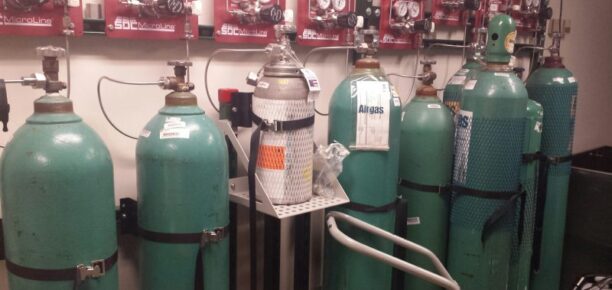Expanding Your Reach with Compressed Gas Sales

Propane companies looking for new ways to grow may find an opportunity in compressed gas sales. Many industries rely on gases like oxygen, nitrogen, acetylene, and carbon dioxide for welding, medical use, manufacturing, and food processing. Adding compressed gas to your product line could open new revenue streams while strengthening your business in an evolving market.
Expanding Market Opportunities
Propane is a reliable market, but expanding into compressed gases can offer a broader customer base. Businesses in construction, healthcare, food and beverage, and industrial manufacturing all require compressed gases on a daily basis. By offering these products, your company can serve a broader range of industries while maintaining strong propane sales.
Compressed gases are in high demand, and by diversifying your services, you can increase sales year-round. Unlike propane, which may see seasonal fluctuations, many businesses that use compressed gases need a consistent supply throughout the year. This can help stabilize cash flow and balance revenue during slower propane months.
Maximizing Existing Infrastructure
One of the advantages of adding compressed gas sales is that your propane business already has experience handling and delivering gas safely. You likely have storage facilities, transport equipment, and a trained workforce understanding how to manage high-pressure gases. This puts you in a strong position to expand without needing a complete overhaul of your business operations.
While additional storage, tanks, and safety training may require some investment, much of your existing setup can support this new revenue stream. Expanding into compressed gas sales can be a natural extension of your current services, allowing you to grow without having to start from scratch.
Building Stronger Customer Relationships
Many businesses that purchase propane may also need compressed gases for other applications. Restaurants use carbon dioxide for beverage systems, construction companies require acetylene for welding, and hospitals need oxygen for medical use. By offering both propane and compressed gases, you can provide a more complete service to customers, making them less likely to turn to competitors.
When your company becomes a one-stop shop for all fuel and gas needs, customers will appreciate the convenience of working with a single supplier. This can lead to stronger business relationships, higher retention rates, and long-term contracts.
Meeting Industry Demand and Regulations
Compressed gas sales come with safety and regulatory requirements, much like propane. Your business is already experienced in handling hazardous materials, making it easier to adapt to compressed gas storage and distribution requirements. You can enter the market while maintaining high safety standards by ensuring your team is adequately trained, and safety measures are in place.
Additionally, diversifying into compressed gas sales can make your business more adaptable to future changes in energy demand. If propane regulations tighten or alternative fuels gain traction, having multiple product lines can keep your company profitable and relevant.
How Diversifying Can Strengthen Your Business
Expanding into compressed gas sales offers propane businesses a chance to grow, serve more customers, and increase financial stability. With minimal adjustments to existing infrastructure and the ability to reach industries that rely on propane and compressed gas, this move can help propane retailers stay competitive. These companies can create long-term growth by adding new revenue streams and strengthening customer relationships while maintaining their solid position in the energy sector.













